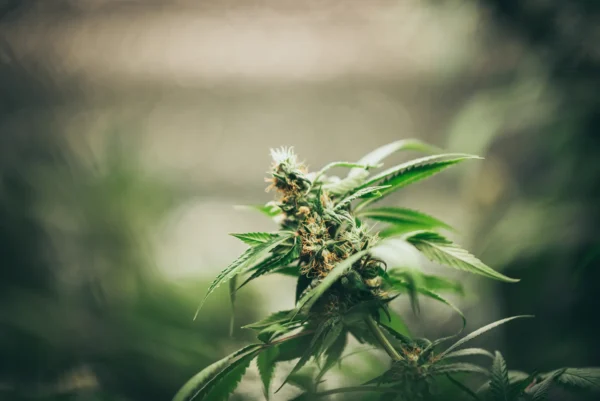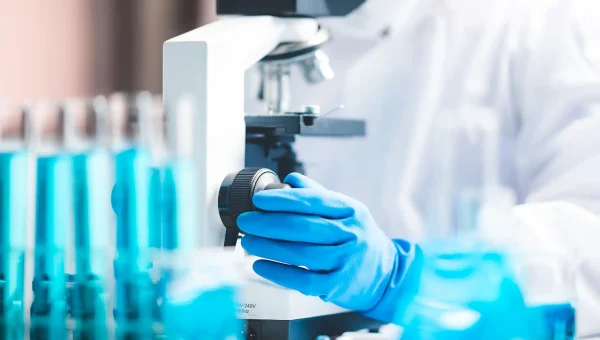Cannabis Sativa L. is an extremely versatile plant that has been used for thousands of years for a wide range of practical, spiritual, and recreational purposes. In recent decades, the focus of medical cannabis research has settled primarily on the two most abundant phytocannabinoids produced by the plant: delta-9 tetrahydrocannabinol (THC) and cannabidiol (CBD).
The growing popularity of CBD
More recently, CBD has become increasingly popular among health and wellness consumers with the compound now commonly added to products such as food and drinks, as well as being available in tinctures and topical balms. The popularity of CBD among consumers stems from the perceived therapeutic properties of the compound, including its anti-inflammatory, antioxidant, anti-anxiety, and anticonvulsant potential. However, only a few of these medicinal uses have been confirmed by clinical trials – the most noteworthy being the potential of CBD-based medicines in the treatment of rare forms of epilepsy.
CBD has been legalised in many countries around the world, making way for a growing market for CBD-containing products. However, many of these preparations also contain small amounts of various other cannabinoids, some of which may be controlled. Therefore, there is a clear need for precise and repeatable analytical methods for quantifying controlled phytocannabinoids in consumer CBD products. To this end, the authors of a recent review aimed to establish “the composition and characteristics of the phytochemicals found in cannabis, the advantages and disadvantages of controlled and uncontrolled phytocannabinoids, and the need for regulation and standardisation in the use of cannabis and products containing phytocannabinoids.”
The effects of cannabinoids
The cannabis plant is thought to produce over 140 cannabinoids. Of these, the majority occur naturally in small quantities, with THC and CBD being the most abundant. However, cannabinoids are also produced naturally within the bodies of humans and other animals – these are known as endocannabinoids. Synthetic cannabinoids can also be manufactured in laboratories. Each of these compounds interacts with receptors in our bodies to produce a wide range of effects.
These effects can be divided into four main categories: emotional, sensory, somatic, and cognitive. Long-term cannabis use has also been associated with various health problems, including the development of mental health issues, such as depression and psychosis. However, there is also growing evidence to support the medicinal potential of various cannabinoids in a clinical setting. Nonetheless, in many countries, cannabis and cannabis-containing medicines are categorised as controlled substances with “high potential for abuse”.
The rising popularity of CBD is in line with an upsurge in research and scientific interest in the potential of CBD medical conditions. However, there is no evidence to support the efficacy of over-the-counter CBD products in any of these areas.
Testing CBD-containing products
As CBD-containing products become more prominent in medicine, food, and cosmetics, the question of their safety is more important than ever. Hemp cultivars, due to their relatively high CBD content and low THC content, have become a natural choice as a source for CBD extraction. Various methods of extraction may be used, including extraction by polar and nonpolar solvents, carbon dioxide extraction, alcohol extraction, and steam distillation. Once extracted from the plant material, CBD extracts are then infused into other products, including skincare, drinks and food products.
Test data, predictive results, and final quantitative and qualitative assessments may help monitor the use of cannabinoids in food systems. The creation of organoleptic, physical, and chemical profiles of cannabinoid-containing products can be adapted to consumer demand or the assessment of their toxic effect. There is currently little evidence to suggest that the phytocannabinoids found in many consumer CBD products pose a risk to human health. However, the authors note that there is a need for further research to assess the potential actual risk of using phytocannabinoids in foods.
Conclusions
Mounting evidence suggests that phytocannabinoids may have a number of effects in humans. However, in-depth research does show that cannabinoids can have adverse effects when not regulated properly. The researchers note, therefore, that there should be “specific limitations on the content of CBD in consumer CBD products and foods.”
Understanding the composition and properties of phytochemicals in cannabis and consumer products is crucial to their appropriate use. Yet, extraction, separation, and quantification of controlled phytocannabinoids in consumer CBD products are not currently robust enough in terms of sensitivity, accuracy, and reliability. Further research is required to develop analytical methods that are accurate and reproducible. More studies are also needed to improve our knowledge of the bioavailability and assessment of cannabis and products containing phytocannabinoids.
The authors note understanding the metabolic pathway and conditions for extracting and administering cannabinoids will increase safety and expand its use among consumers. Finally, the authors conclude that “consumers deserve clear, consistent federal standards governing CBD percentages in their food products. This will help them to know the exact dosage of CBD in their products.”





